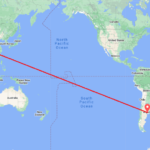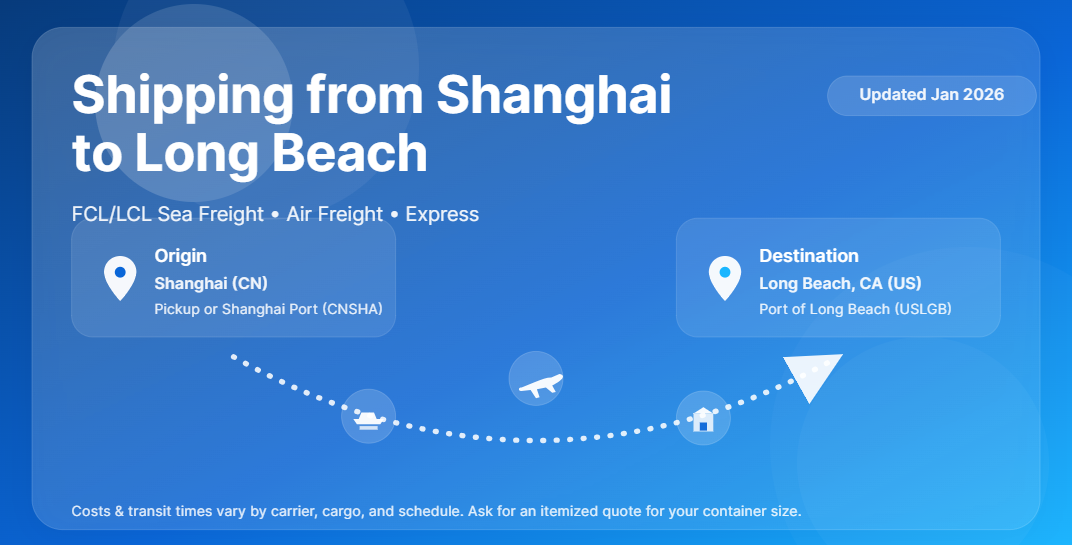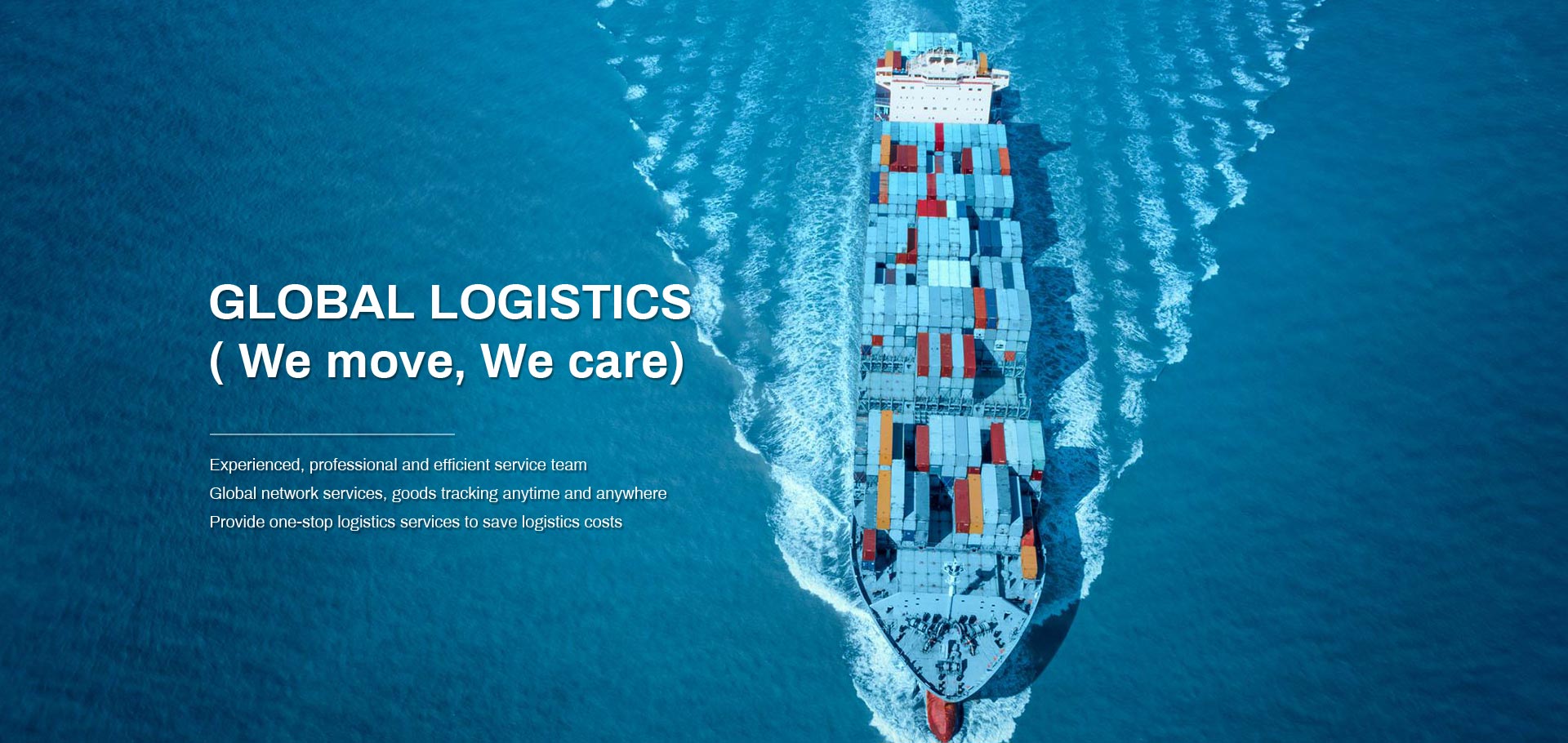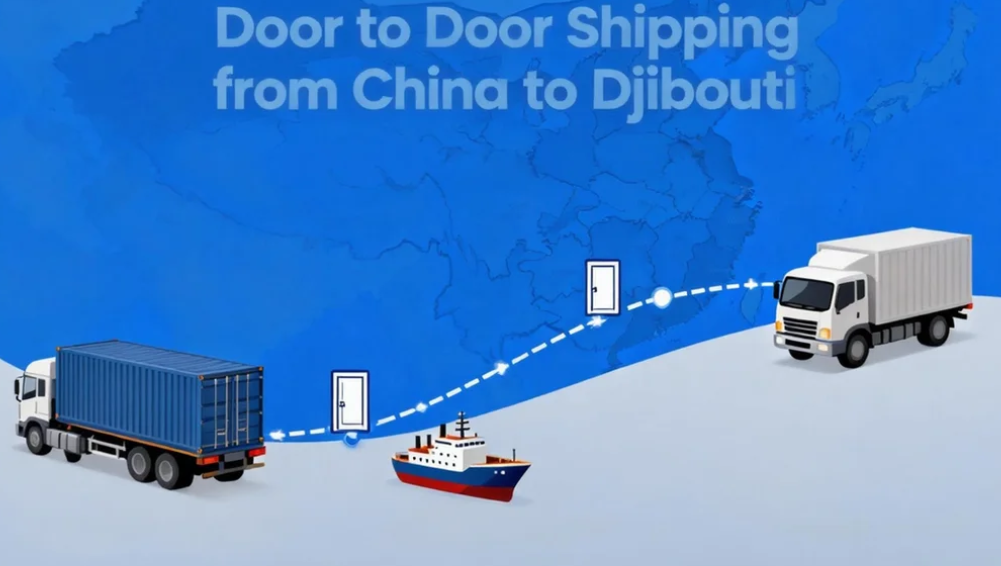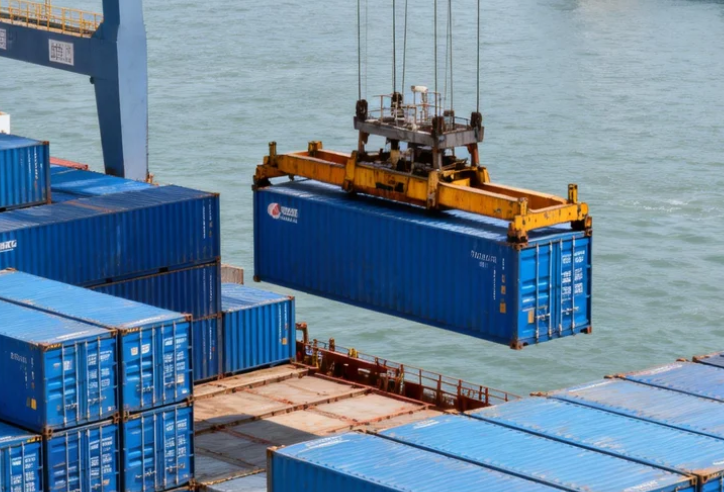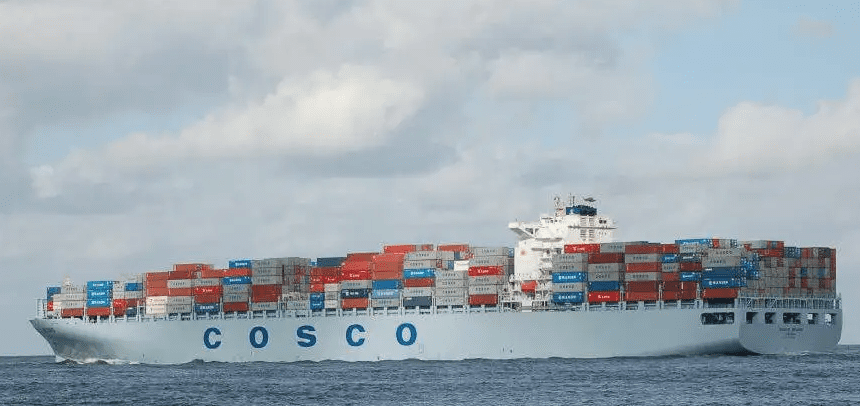Are you curious about the container shipping costs from China to Argentina?Understanding these costs is essential for anyone looking to import goods efficiently.
In this article, we delve into the key factors influencing shipping costs, such as shipping routes, container sizes, and transport modes. In this comprehensive guide, we’ll break down the expenses associated with 20 ft and 40 ft containers, explore additional fees, and provide expert tips to help you reduce shipping costs. Get ready to navigate the complexities of international shipping with confidence!
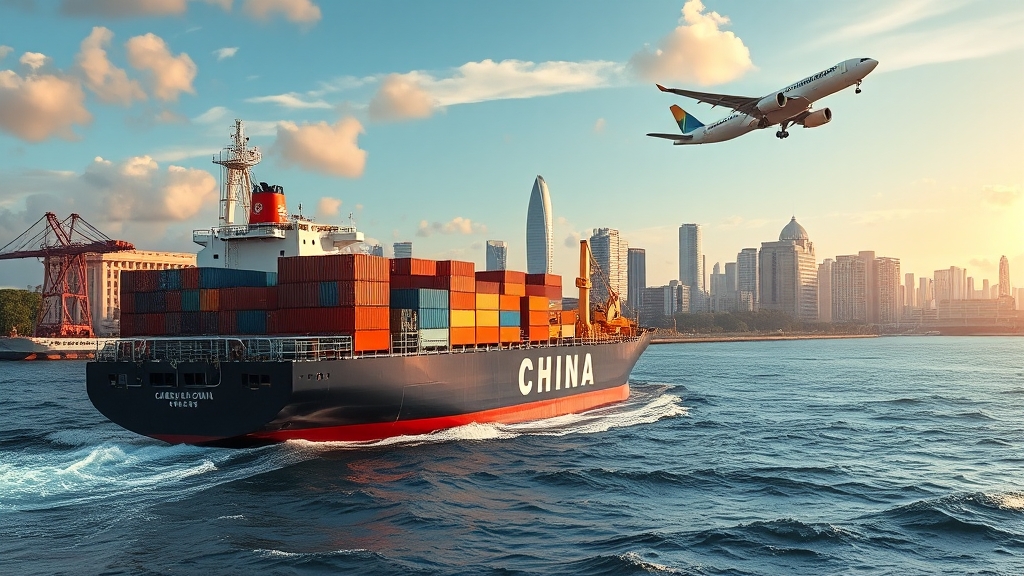
Understanding Container Shipping Costs from China to Argentina
Shipping containers from China to Argentina involves various costs that shippers must consider when budgeting for their logistics needs. Understanding these costs can help you make informed decisions and optimize your shipping strategy.
Key Components of Container Shipping Costs
Freight Charges: The primary cost associated with shipping a container. This varies based on the shipping method (sea freight is the most common for container shipping) and the container size.
Fuel Surcharge: A fluctuation in fuel prices can lead to additional charges, usually calculated as a percentage of the base freight cost.
Customs Duties and Taxes: Import duties in Argentina can range from 0% to 35%, depending on the type of goods being imported. VAT is typically 21% on imported items.
Terminal Handling Charges (THC): Fees for services rendered at the port, including loading and unloading containers, which can range from $100 to $300.
Documentation Fees: Charges for preparing necessary shipping and customs documentation, often around $50 to $150.
Container Rental Fees: If the shipping period exceeds the standard time, extra charges may apply for container usage.
Insurance: Optional but recommended, insurance costs typically range from 0.5% to 2% of the cargo value, providing coverage against loss or damage during transit.
Estimated Container Shipping Costs
Here are the average estimated costs for shipping a container from China to Argentina as of 2025:
| Container Size | Estimated Cost | Transit Time |
| 20-foot container | $1,200 – $2,500 | 30 – 45 days |
| 40-foot container | $1,800 – $3,500 | 30 – 50 days |
| 40-foot HC container | $1,900 – $3,700 | 30 – 50 days |
Understanding the various costs associated with container shipping from China to Argentina, including freight, customs duties, and additional fees, is essential for accurate budgeting and efficient logistics planning. By considering these factors, shippers can better manage their expenses and ensure a smooth shipping process.
Key Factors Influencing Shipping Costs
Shipping costs are shaped by multiple elements. Here are the main ones in August 2025:
Distance & Routes
- Distance: Longer distances mean higher costs. Shipping to the US East Coast from Asia costs more than to the West Coast.
- Routes: Asia – Europe routes face congestion in ports like Rotterdam and Hamburg, increasing costs. Newer or less – used routes may offer savings.
Seasonality
- Peak Seasons: Holidays and sales events like Black Friday drive up demand. Shipping rates can increase by 20 – 50%, and lead times grow. Maersk has imposed PSS on some Asian – African routes since July 2025.
- Off – Peak Seasons: Generally cheaper, though the difference is less distinct in 2025 due to e – commerce’s impact on demand.
Fuel Prices
Oil prices are up 18% compared to last year. Shipping companies pass on these increased costs, significantly raising shipping rates.
Customs Duties & Taxes
Rates vary by product and country. In the US, consumer goods may have 5 – 25% import duties. EU countries have 15 – 27% VAT. Trade negotiations can cause sudden rate changes.
Packaging & Weight
- Dimensional Weight: Carriers use it to calculate costs. Oversized packages may face extra fees.
- Weight Class: Heavier shipments cost more, but consolidation can reduce costs.
Insurance
Costs range from 0.5 – 2% of cargo value. Higher – risk regions or valuable goods may have higher premiums.
Documentation & Compliance
New customs regulations in many countries mean incorrect paperwork can cause delays and extra costs. Shippers must stay updated on these requirements.
For tailored shipping solutions, consider Dantful International Logistics.
Container Size: 20ft vs. 40ft
The size of the container is another critical factor influencing shipping costs. The two most common sizes are the 20ft and 40ft containers. Typically, a 20ft container can hold about 33 cubic meters of cargo, while the 40ft container can accommodate approximately 67 cubic meters. Here’s a brief comparison:
| Container Size | Capacity (m³) | Typical Uses |
|---|---|---|
| 20ft | 33 | Small shipments, individual items |
| 40ft | 67 | Larger shipments, bulk goods |
Generally, the cost per cubic meter decreases with the size of the container. Therefore, opting for a 40ft container might be more cost-effective for larger shipments, while smaller loads may be better suited for 20ft containers.
Mode of Transport: FCL vs. LCL
Another factor influencing container shipping costs is the mode of transport, specifically Full Container Load (FCL) versus Less than Container Load (LCL).
- FCL is when a single shipper fills an entire container, which often leads to lower costs per unit, as the shipping rate is based on the full container. This option is ideal for larger shipments.
- LCL, on the other hand, involves multiple shippers sharing a single container. While this can be more economical for smaller shipments, it may incur additional handling fees and longer transit times due to the need for consolidation and deconsolidation.
By understanding these key factors, importers can gain greater clarity on container shipping costs and make strategic choices that align with their business objectives. For detailed information on costs, check the Shipping From China to Argentina page. Additionally, to explore shipping times, visit shipping times from china to argentina.
Shipping Costs for Containers from China to Argentina
When importing goods from China to Argentina, understanding the shipping costs is crucial for effective budgeting and planning. The costs can vary significantly based on several factors including container size, shipping mode, and additional fees.
20 ft Container Shipping Cost from China to Argentina
The shipping cost for a 20ft container from China to Argentina can fluctuate based on various market conditions, including fuel prices and demand for shipping space. As of the latest data in August 2025, the average cost for transporting a 20ft container is approximately $1,500 to $3,000.
Cost Breakdown for 20ft Containers
| Item | Cost Range (USD) |
|---|---|
| Base Shipping Rate | $1,200 – $2,500 |
| Port Fees | $100 – $300 |
| Handling Charges | $50 – $150 |
| Customs Clearance | $100 – $250 |
| Insurance (Optional) | $50 – $150 |
| Total Estimated Cost | $1,500 – $3,000 |
The above table illustrates a breakdown of the costs associated with shipping a 20ft container. Note that actual costs may vary based on the shipping line used and the specific route taken.
40 ft Container Shipping Cost from China to Argentina
For those looking to ship larger volumes, a 40ft container is often the preferred choice. The costs associated with a 40ft container typically range from $2,500 to $5,000.
Cost Breakdown for 40ft Containers
| Item | Cost Range (USD) |
|---|---|
| Base Shipping Rate | $2,000 – $4,000 |
| Port Fees | $150 – $400 |
| Handling Charges | $100 – $200 |
| Customs Clearance | $150 – $300 |
| Insurance (Optional) | $100 – $200 |
| Total Estimated Cost | $2,500 – $5,000 |
The table above provides an overview of the potential costs involved in shipping a 40ft container. Again, these figures can fluctuate based on various external factors, including shipping demand and fuel prices.
Comparison of FCL and LCL Shipping Costs
When deciding whether to use Full Container Load (FCL) or Less than Container Load (LCL) services, it’s essential to consider both the cost and the volume of goods being shipped.
| Parameter | FCL (40ft Container) | LCL (Based on CBM) |
|---|---|---|
| Cost per unit | $2,500 – $5,000 | $100 – $200 per CBM |
| Ideal for | Larger shipments | Smaller shipments |
| Transit Time | Longer (due to full container delivery) | Usually faster |
| Flexibility | Less flexible (fixed space) | More flexible (space available) |
FCL is generally more economical for larger shipments due to the fixed cost of the container, while LCL is a viable option for smaller quantities where you only pay for the space you use.
READ MORE:
- Shipping From China to the USA
- Shipping From China TO Canada
- Shipping From China TO Mexico
- Shipping From China to Panama
- Shipping From China to Costa Rica
- Shipping From China to Brazil
- Shipping From China TO Colombia
- Shipping From China to Jamaica
- Shipping From China to Venezuela
- Shipping From China to Argentina
Additional Fees and Charges
When budgeting for shipping, it’s crucial to consider additional fees and charges that may not be included in the initial quote.
Port Fees and Handling Charges
Port fees can vary significantly between different ports in Argentina. Typically, port fees can range from $100 to $400 depending on the specific port of entry and any additional handling charges applied by the terminal.
Customs Duties and Taxes
Customs duties and taxes are another essential consideration. In Argentina, the customs duties can range from 0% to 35% of the goods’ value, depending on the product category. It’s vital to work closely with a freight forwarder like Dantful International Logistics to ensure that all customs regulations are met and to accurately calculate these costs.
In conclusion, understanding the various shipping costs and additional charges involved in transporting goods from China to Argentina is essential for any importer. By partnering with a reliable freight forwarder such as Dantful International Logistics, you can optimize your shipping experience, ensuring cost-effectiveness and compliance with regulatory requirements. You can find more information about Shipping From China to Argentina and the freight forwarder from China to Argentina.
Shipping Time from China to Argentina
Average Transit Times for Sea Freight
When shipping containers from China to Argentina, the average transit time for sea freight varies based on several factors, including the shipping route and port of origin. Generally, the shipping time for a container to reach Buenos Aires, the primary port in Argentina, from Shanghai is approximately 30 to 45 days. Here is a breakdown of estimated transit times based on different routes:
| Port of Origin | Destination Port | Average Transit Time (Days) |
|---|---|---|
| Shanghai | Buenos Aires | 30-45 |
| Shenzhen | Buenos Aires | 32-48 |
| Ningbo | Buenos Aires | 33-46 |
| Qingdao | Buenos Aires | 34-50 |
These transit times are estimates and can fluctuate based on shipping schedules, weather conditions, and port congestion. It’s essential to account for these factors when planning your shipping logistics. For more detailed shipping times, visit shipping times from china to argentina.
Factors Affecting Shipping Duration
Several factors can influence the container shipping duration from China to Argentina:
- Shipping Route: In 2025, direct routes are fastest but scarce. Many shipments use indirect routes with transshipment. Panama Canal congestion, due to high traffic, has added 3 – 5 days to transit times recently for ships on relevant routes.
- Port Congestion: Buenos Aires port faces significant congestion, especially during Argentina’s agricultural export peak (April – June), causing 5 – 10 – day unloading delays. Congestion at transshipment ports like Rotterdam or Santos also slows down the process, as shipping lines adjust routes in the ongoing global trade re – balance.
- Vessel Schedule: Shipping lines’ frequencies vary. In 2025, some carriers, like CMA CGM, offer more regular services to South America, while smaller operators have more sporadic schedules, affecting waiting times for cargo.
- Customs Clearance: Argentina has specific customs regulations. In 2025, new trade policies mean incorrect or incomplete paperwork can lead to extra inspections and extend clearance times.
- Seasonal Factors: Severe weather in the South Atlantic, such as storms and high winds, can slow vessels. As the Southern Hemisphere winter approaches in 2025, it may pose challenges and potentially extend transit times.
Tips for Reducing Container Shipping Costs
Choosing the Right Freight Forwarder
Selecting a proficient freight forwarder like Dantful International Logistics can make a significant difference in your shipping costs. A reliable freight forwarder will:
- Provide competitive rates through established relationships with shipping lines.
- Help you navigate complex shipping regulations and documentation requirements.
- Offer flexible solutions tailored to your shipping needs, whether you require FCL (Full Container Load) or LCL (Less than Container Load) services. For more information about FCL and LCL, check out what is lcl and fcl in shipping.
By leveraging the expertise of a specialized freight forwarder, you can achieve cost savings and ensure your cargo is transported efficiently.
Consolidating Shipments for Cost Efficiency
Consolidating shipments can be a highly effective strategy for reducing container shipping costs. By combining multiple small shipments into a single container (LCL), you can benefit from lower freight rates compared to shipping individually. Here are some additional benefits of consolidation:
- Cost Sharing: Shared transportation costs among multiple shippers can significantly lower your overall shipping expenses.
- Faster Processing: Fewer shipments mean less documentation and handling at ports, which can streamline the shipping process.
- Environmental Benefits: Consolidating shipments reduces the carbon footprint associated with multiple trips, contributing to more sustainable logistics practices.
Working with Dantful International Logistics allows you to take advantage of consolidated freight shipping, further enhancing your cost efficiency while maintaining high-quality service.
FAQs
1. How much does it cost to ship a container to Argentina?
Shipping a container to Argentina typically costs between $1,200 to $3,700 depending on size and route.
2. How much does it cost to ship a 40ft container from China?
The cost to ship a 40ft container from China usually ranges from $1,500 to $3,500.
3. What is the cheapest way to ship a container?
The cheapest way to ship a container is typically via sea freight using full container load (FCL) options.
4. What is the import tax in Argentina?
The import tax in Argentina can vary but generally ranges from 0% to 35% depending on the type of goods.

Young Chiu is a seasoned logistics expert with over 15 years of experience in international freight forwarding and supply chain management. As CEO of Dantful International Logistics, Young is dedicated to providing valuable insights and practical advice to businesses navigating the complexities of global shipping.





